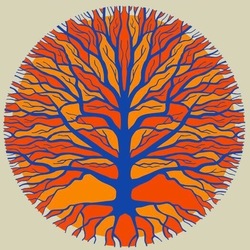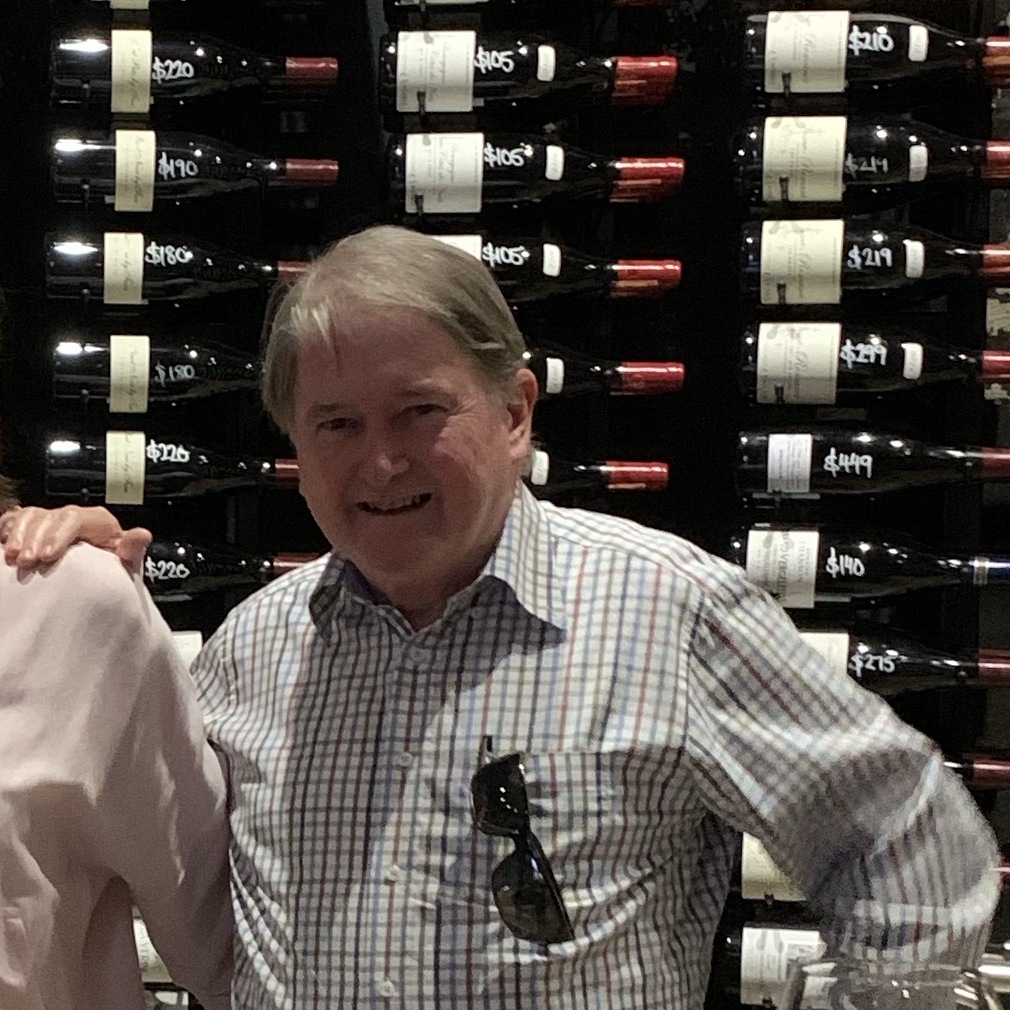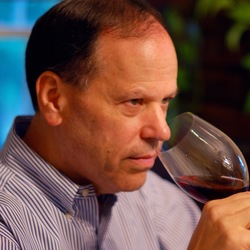Pressing Matters
Bacci Wines
Renieri Brunello di Montalcino Sangiovese 2015
2015 Renieri Brunello Di Montalcino - This wine gives lots of richness and structure. Tannins are still not fully integrated, but improved from my last try a couple years ago. FWIW, James Suckling gave this wine 100pts. This was my second time with this one, and while I still don’t see the 100pts, I do see it as delicious and for me that matters more than points.
Winemaker notes says it best - this wine opens with earthy aromas of bark, sand, truffles, graphite, rust, terracotta and sandalwood. Fruitier orange zest and lemon. Ripe, incense and with dense forest of aromas. Rich to the center palate, the fruit is vivacious and elegant. Robust and generous tannins. The finish is long, the after effects of the acidity unworldly. — 3 years ago
Beauregard Vineyards
Regan Vineyard Orange Pinot Gris 2016
2016 Sparkling Pinot Gris orange wine.
Ryan, yes, more please and thank you!
A fan of the orange Pinot Gris, geeked to of received an email regarding the release of a personal winemaker stash of sparkling orange Pinot Gris.
“To quickly explain, an “orange wine” is made from white grapes, but instead of pressing the white grapes and discarding the skins like normal white wine production, they are kept in contact (just like red wine production) with the juice for 21 days extracting the orange of color. For fun, I produced a small personal batch that was made like a traditional method champagne. Perhaps the only one of its kind.
I hope you enjoy!
Ryan”
Perfect amount of bubbles, lightly carbonated, any more and it would of been a bit rough.
— 5 years ago
Lantieri De Paratico
Brut Franciacorta Chardonnay Blend
Franciacorta Cuvèe Brut D.O.C.G. an aromatic brut with yeast attributes. Lovely, tasty and with a twist.
Grapes: Chardonnay 80% - Pinot Bianco 10% - Pinot Nero 10%
Vinification: Soft pressing of the grapes, fermentation in steel vats and in small oak barrels at a controlled temperature. After fermentation, the wine is kept in contact with the yeasts through a batonage operation. The Franciacorta is then prepared for the tirage with which the refermentation in the bottle begins and the refinement on the yeasts for an average of 24 months.
Permanence in the bottle in contact with the yeasts: At least 24 months.
Sugars: 5.5 g/l — 10 months ago
Oakridge
Single Block Release 864 Drive Block Funder & Diamond Vineyard Chardonnay 2011
Last bottle of this very impressive Chardonnay. Still very flinty and burnt match on the nose with a slightly sweeter palate than the last note. That grapefruit in its youth is now more yellow peach. Technical notes - using the P58 clone. All grapes were hand harvested prior to whole bunch pressing to French Oak puncheons - 30% new oak. Malolactic conversion was prevented. Drinking at its peak - made by one of Australia’s leading exponents of Chardonnay In David Bicknell. This is world class! — 2 years ago
Zenato
Ripassa Valpolicella Ripasso Superiore Corvina Blend 2016
After pressing dried grapes from making Amarone, Valpolicella wine is passed over the still warm skins of Amarone for 2nd alcoholic fermentation, increasing the alcoholic content, aromas and color. Blend of 85% Corvina, 10% Rondinella, 5% Oseleta. Deep Ruby with aromas of sweet dried berry fruits and pepper spice. On the palate ripe blackberry, currants and sweet cherry with complex spice. Well balanced with acidity and alcohol, full-body with soft tannins on long finish. Nice value. — 4 years ago
Remhoogte
Honeybunch Reserve Chenin Blanc 2019
More and more I will be getting out of my comfort zone. This is a single vineyard Chenin Blanc from South Africa, Stellenbosch. Hand-picked whole bunches, kept on the skins for 12 hours after harvest before gentle pressing. 12 month fermentation and maturation in 225L French oak barrels. The skin contact produces a beautiful medium gold color that's as shiny as a wedding band on a honeymoon. Indeed, honeysuckle is among the aromas that also include pear, peach, apricot, marmalade, and a twist of lime. Everything gets confirmed on the palate, with a touch of brioche. Medium plus bodied, dry (with a hint of residual sugar on the tongue), medium acidity. A great wine.
92+ points — 5 years ago
Terras Gauda
Rías Baixas Albariño 2023
Ah, "Terras Gauda Rías Baixas Albariño'-a veritable jewel from the spectacular landscapes of Spain's Galicia, specifically the picturesque Rías Baixas DO, where the Atlantic whispers sweet nothings to the vines. This splendid Albariño unveils a bouquet of zesty lemon, fragrant white flowers, and a hint of sea breeze, tantalising the senses like a playful flirtation. The producer, Bodegas Terras Gauda, founded by the illustrious Ramón V. de Garay, is famed for its commitment to sustainable practices. Fun fact: they pioneered the use of genetic research in their vineyards-a cleverer endeavor than my attempts at crossword puzzles! Albariño, that beguiling grape, is renowned for its bright acidity and versatility; a wonderful partner in crime for seafood, particularly oysters, as the minerality complements their briny sweetness. It also loves the spicy embrace of Asian cuisine, where its zesty notes dance playfully. This delightful nectar has garnered praise, earning a commendable 90 points from Wine Enthusiast. Truly, it's one to uncap whilst contemplating life or... other intimate matters far too risqué for polite company! — a year ago
Château Trotanoy
Pomerol Red Bordeaux Blend 2006
2006 vintage. Decanted and tasted after 3 hours. Ummm...yeah. Not the greatest vintage for the Right Bank. It matters not. This wine redefines the word "brooding." Massive body (still!) after 1.5+ decades and a nose chock full of black truffles and fudge. Flavors added pine forest mud and a fines herbes ensemble. Generally not the biggest Pomerol fan but this wine casually tosses out both exquisite brusque and delicate tendencies in the same draw. This has at least two decades to stroll around the grounds until it feels at home. Goo goo koo joo. Simply, effing magnificent. WOTN! Happy birthday, Dermott! 3.5.23. — 3 years ago

Valdespino
Viejo C.P. Macharnudo Vineyard Palo Cortado Jerez-Xérès-Sherry Palomino Fino
Elegant as all get out. I can’t get over Palo Cortado, even with its shady requirement to be called “Palo Cortado”—pretty sure some are no more accidental “failed Finos” than chocolate chip cookies were a ‘whoops I dropped chocolate in the dough’—but that matters not. Mixed nuts and lemon and amaretto don’t sound like things I’d want to consume all at once but they are elements of this wine I love all at once. — 4 years ago











Freddy R. Troya
Domaine Derey Frères – Marsannay “Les Vignes Marie” 2021 🇫🇷
Marsannay AOC, Côte de Nuits – Burgundy, France
Overview
100% Pinot Noir from Marsannay, the only Côte de Nuits village allowed to produce wines in all three colors (red, white, and rosé). “Les Vignes Marie” is a standout parcel that shows the classic finesse of Burgundy Pinot while keeping Marsannay’s hallmark freshness and approachability.
Aromas & Flavors
Bright red cherry, raspberry, and wild strawberry lead the nose, with hints of rose petal, subtle spice, and earthy forest floor. A touch of mineral undertone brings lift and precision.
Mouthfeel
Elegant and medium-bodied with silky tannins, lively acidity, and a refined structure. Balanced and supple, finishing with freshness that keeps you coming back for another sip.
Winemaking Notes
The Derey family has been established in Marsannay since the mid-17th century, and their work focuses on organic farming and gentle cellar practices. The 2021 vintage, cooler and classic in style, emphasizes delicacy over power.
Food Pairing
Perfect with roast chicken, duck breast, mushroom risotto, or a charcuterie board. Its finesse makes it versatile across light meats and earthy vegetarian dishes.
Verdict
A graceful Burgundy Pinot that captures Marsannay’s balance between Côte de Nuits structure and charming approachability. For me, this sits as one of my most favorite wines in the Côte de Nuits — at a very affordable price point, it punches well above its weight and shows how Burgundy can still deliver tremendous value.
📚 Educational Sidebar – Why Marsannay Matters
Marsannay, at the northern gateway of the Côte de Nuits, is often overshadowed by its neighbors like Gevrey-Chambertin. But its wines deliver exceptional value, showing Pinot Noir with purity, finesse, and terroir character — a smart entry point into Burgundy without the Grand Cru price tag. Cheers! — a month ago